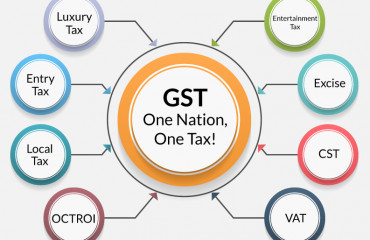
The cess levied on aerated drinks, cigarettes and cars is set to become a bargaining chip in Centre-state talks on GST compensation, with the Centre offering to subsume a part of the levy into the GST rate after March 2026 to placate states, discussions within the government indicate.
The cess levied on aerated drinks, cigarettes and cars is set to become a bargaining chip in Centre-state talks on GST compensation, with the Centre offering to subsume a part of the levy into the GST rate after March 2026 to placate states, discussions within the government indicate.
The Centre is likely to propose the cess, after giving some relief to the automobiles sector, be subsumed into GST after it expires in 2026, a suggestion that may please states worried about their financial position after June when the five-year compensation period ends. States are demanding that the Centre continue to compensate them for their revenue loss.
Subsuming the cess into GST will mean that the states will get half of the proceeds as state GST (SGST) in addition to getting 41% of the Centre's GST collections, a person familiar with the development said on condition of anonymity.
The Centre does not see any merit in states' demand for continued GST compensation beyond June, as it has no legal obligation to compensate states beyond the first five years of the indirect tax implementation. Second, a surge in GST collections means states may not require compensation, which is paid out of cess collection proceeds only when states face a revenue shortfall.
States have been pressing for the extension of GST compensation beyond June and are likely to take it up in the next GST Council meeting.
"The cess component charged today may get subsumed within GST. While a decision has not been taken on this, there is no reason why we should allow cigarettes or aerated drinks to continue at the same rate as non-sin goods," the person said.
The person added that states would gain more if they get a share of higher taxes on these items than continuing to get compensation, which they will get only in case of a revenue shortfall. "GST revenues are at a record high now, much higher than budget estimates and revised estimates. States may not even require compensation," the person added. The states are given full compensation for the first five years of introduction of GST on the assumed revenue growth rate of 14% over the base year of 2015-16.
To be sure, it isn't clear whether states would agree to the suggestion, given that this government's term will be over in 2024, and a new finance commission formula will guide Centre-state fiscal relations after 2026.
Compensation cess is levied on luxury and sin items such as aerated drinks, coal, pan masala, cigarettes and automobiles over the peak GST rate of 28%. The cess on cars goes up to 22% and is 12% for aerated drinks.
The compensation cess collection is estimated at ₹1.2 trillion in 2022-23. If the Centre's formula is applied to this, ₹84,000 crore of this could go to states if they accept the proposal. The amount is likely to go up further in subsequent years.
Experts, however, see some practical difficulties. The GST cess meant to compensate states' revenue losses for a specific period, which has been extended till 2026, should achieve its purpose within that extended period. "Legally, if its purpose has been served, it cannot be levied any further. The difficulty with subsuming it within GST is that it will create an additional slab of 28% plus. Secondly, it can always be challenged in a court by the affected industries as courts have many times clarified that what cannot be levied directly cannot be levied indirectly either. If the cess has served its purpose, it should go. Expiry of cess will help those industries," said Rajat Bose, a partner at law firm Shardul Amarchand Mangaldas & Co.
The first person cited above added that from the Centre's perspective, the decision has already been taken that no additional compensation to states beyond June will be feasible with the cess proceeds up to March 2026 to be utilized to repay the loans raised to finance the compensation.
A query sent to a spokesperson for the finance ministry on Tuesday remained unanswered till the time of going to press.
M.S. Mani, a partner at Deloitte India, said that the so-called 'sin goods' have been taxed at the highest rates even in the erstwhile central excise and value-added tax (VAT) regimes, and that has continued in GST as well. Hence the continuation of the same in future would be on expected lines. However, products other than 'sin goods' which are taxed at the highest rate of 28% plus cess would benefit from a reduction of the rates or the cess as that would increase demand and ease inflation."
Pratik Jain, a partner at PwC India, said that the issue of compensation is very complex, and one can expect some intense deliberations between the Centre and states in days to come. "That said, there has to be a long-term solution found such that states are self-sustainable and don't need compensation from the Centre," Jain said.
